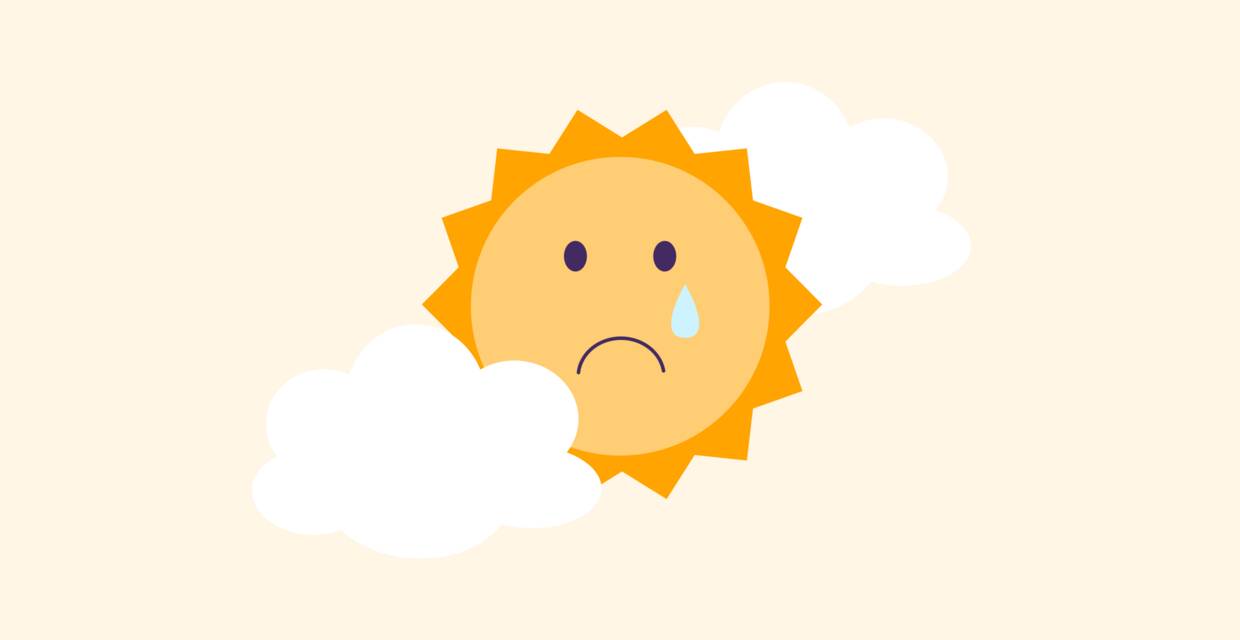Key Points
- The article discusses the mental health challenges faced by the younger generation due to global events such as the pandemic, climate change, and political unrest. It highlights how Gen Z is more likely to seek mental health care and is actively working to reduce stigma around mental health issues.
- The article provides several tips for maintaining mental health, such as spending time outdoors to boost mood, setting boundaries with screen time to avoid negative impacts of social media, and focusing on positive and resonant content when using social media.
- It also emphasizes the importance of flexibility in coping with the uncertainties of the pandemic and the need to prepare for different scenarios to manage anxiety.
- The article recommends seeking a culturally competent mental health provider who aligns with one's needs and values, and suggests using urgent care or alternative therapeutic models in the face of a shortage of mental healthcare professionals.
- Finally, the article introduces Solv, a platform that can help individuals begin to address their mental health symptoms, discuss possible next steps, and connect with emergency services if needed.
If you’re feeling overwhelmed or out of sorts heading into the summer, you’re not alone. It would be an understatement to say that a lot is going on in the world: two years into the pandemic and one year after vaccines became widely available, tens of thousands of Americans have Covid each day. Russia is at war with Ukraine, reproductive rights are under threat in nearly half of U.S. states, and climate scientists keep warning that society must make drastic changes to slow the effects of climate change.
These global events are a lot to mentally and emotionally process — particularly for younger generations, whose developmental years were interrupted by the pandemic and who are figuring out how to navigate the world they’ve inherited. More than one in four Gen Z respondents reported their mental health as fair or poor — nearly double the rate reported by Millennial and Gen X respondents, according to Verywell Mind.
The good news is that many young people are committed to taking an active role in their mental healthcare. For example, Gen Z were more likely to have received treatment or gone to therapy compared to older generations, according to the American Psychiatric Association. Younger Americans understand there’s no shame in seeking help. They want to work through challenges to expand the possibilities of their life and be in the healthiest headspace possible.
This approach reduces stigma and promotes open conversations around mental health that benefit all generations, as we grapple with challenges big and small. This #MentalHealthAwarenessMonth, the Solv team has compiled tips to help shape your mental health plan for this summer.
Spend time outside
Temperatures are warming, flowers are blooming and the days are growing longer. Summer months are a great time to soak up Vitamin D, which can affect mood, according to Healthline.
For those who experience seasonal affective disorder (SAD), symptoms may lessen during warmer months, according to the MAYO Clinic (though a small portion of people experience it in reverse, where depressive symptoms occur during warmer months).
Meanwhile, research shows that spending time in nature or green urban settings can benefit our mental health. For example, time in nature can improve sleep, reduce stress, and also boost things like creativity and attention, according to the National Institute on Mental Illness (NAMI) California.
When combined with restorative benefits of exercise, being active outdoors is a great way to boost serotonin levels, notes NAMI. If you’re feeling down, getting up to move around may feel effortful — and the opposite of what you want to do — but could provide just the energy boost that you need.
Set boundaries with screen time
Cutting back on screen time is challenging — and that’s not your fault! It’s designed to be this way: technology companies structured apps like Facebook and Instagram to hold people’s attention, according to PsychCentral.
Some compare social media to addictive substances: “Social media isn’t like rat poison, which is toxic to almost everyone. It’s more like alcohol: a mildly addictive substance that can enhance social situations but can also lead to dependency and depression among a minority of users,” wrote Derek Thompson in The Atlantic. In fact, Instagram’s own research has shown that 1 in 3 teenage girls surveyed said that Instagram made them feel worse about their bodies, but they felt unable to stop using it.
Especially in a 24/7 news cycle, doomscrolling on Twitter or Tiktok can make it harder to unplug when you need a break. Consider limiting how much time your phone lets you spend in an app per day, which can be modified in iPhone settings. A reminder will appear once you hit your limit. If certain Instagram accounts make you feel poorly about your self-esteem, social life or body image, consider muting or unfollowing so they don’t appear on your feed.
If you need a more comprehensive detox, think about an Instagram or TikTok cleanse altogether and delete the apps for a bit. When they’re not there, the impulse to check may not cross your mind as often. Consider it the digital form of “protecting your peace.”
When you do use social media, focus on accounts that resonate
Despite social media’s flaws, it’s not all bad: it can be used to connect with others, find new communities online and share openly about mental health struggles, according to Verywell Mind.
Plus, the internet is full of (often free) resources if you’re curious about mental health: therapists are on TikTok, registered dieticians who help people recover from eating issues are on Instagram, and there are artists galore who explore topics like self-care and healing (While using social media platforms may be helpful for general information, they should not be used to diagnose. Be sure to verify the source and always talk to your health care provider for an individualized assessment).
When you are online, try to find accounts that you resonate with, whether they’re writers, poets, artists, service providers or experts from other backgrounds. To be sure, following such accounts is not a substitute for professional therapeutic support or medical advice — but they can be a helpful place to start dipping your toe into these waters.
Stay flexible to cope with ambiguity
Life since the Omicron wave has been confusing and mentally taxing as we monitor surges and recalibrate travel plans. Sometimes it feels like another variant is right around the corner; other times, it may feel like the pandemic has lulled.
The reality is that we’ll never know exactly what’s coming next, and the anxiety of not knowing can cause more pandemic fatigue, wrote Yasmin Tayag in The Atlantic. But it can also be freeing to accept that we cannot predict the future. “The best way to prepare for an uncertain future is to stay as flexible as you can,” Tayag wrote.
If you’re craving control, experts suggest thinking through what you’re going to do no matter what happens so you can become mentally prepared for any scenario, according to The Atlantic. For summer adventures, this might look like having a few different contingency plans.
Above all, it helps to draw on — and feel proud of — your resilience over the last two years. Managing fears, anxieties and existential threats during a global pandemic is no small feat! Allow your grit and growth to remind you that you’re prepared and capable of handling whatever comes your way. Remember that you might have to bend to unexpected crises, but they won’t break you. You’ve already proved that you can withstand a lot.
Look for a mental health provider who vibes with you
If you’re struggling with feelings of anxiety, depression, stress or overwhelm, it might be time to find a therapist. This takes time and effort, but is a worthwhile pursuit in the long run to help you manage your mental health in a structured way.
If you have a primary care provider, see if they have referrals for mental health specialists, according to the Washington Post. Asking family and friends for recommendations can also help, as well as searching online for therapists in your region and reading their websites to see if you align with their approach. If you have private insurance, search your insurer’s online directory to find in-network providers or ask your insurer to send a list.
It’s important to find a therapist that’s culturally competent in the context of race, ethnicity, gender, sexual orientation and other aspects of identity. Be sure to read bios closely based on what you’re looking for. Therapists often have particular training with certain communities or areas of expertise, and may specify that they are “LGBTQ+-friendly,” for example.
Consider urgent care and alternative therapeutic models
Due to the current shortage of mental healthcare professionals, there might be a wait before you find a therapist who is currently accepting new patients. In the meantime, urgent care can be an effective option to treat certain acute mental health symptoms (we explore when urgent care is a good fit in more depth in this other post).
It could also be worth considering alternative models. Beyond therapy, some new digital platforms also offer tools and coaching. If you’re a teenager experiencing depressive symptoms, your primary care provider may be able to prescribe an FDA-approved digital therapeutic at little to no out-of-pocket cost to you.
How Solv can help with mental health
Speaking with a provider can help you begin to address symptoms and discuss possible next steps for your long-term mental health care plan, as needed. Providers also can talk about referrals or direct people facing immediate crises to the emergency room.
Frequently asked questions
What are some of the global events causing stress and anxiety?
There are several global events causing stress and anxiety. These include the ongoing COVID-19 pandemic, the war between Russia and Ukraine, threats to reproductive rights in nearly half of U.S. states, and warnings from climate scientists about the need for drastic changes to slow the effects of climate change.How has the pandemic affected the mental health of younger generations?
The pandemic has significantly affected the mental health of younger generations, particularly Gen Z. According to Verywell Mind, more than one in four Gen Z respondents reported their mental health as fair or poor, nearly double the rate reported by Millennial and Gen X respondents. The pandemic has interrupted their developmental years and they are now figuring out how to navigate the world they've inherited.What are some ways to improve mental health during the summer months?
Spending time outside, setting boundaries with screen time, focusing on social media accounts that resonate with you, staying flexible to cope with ambiguity, and seeking help from a mental health provider are some ways to improve mental health during the summer months. Spending time in nature can improve sleep, reduce stress, and boost creativity and attention.How can reducing screen time benefit mental health?
Reducing screen time can benefit mental health by preventing the negative effects of excessive social media use, such as feelings of inadequacy, depression, and anxiety. It can also help prevent "doomscrolling," which is the habit of continuously scrolling through bad news on social media, which can increase feelings of anxiety and stress.How can social media be used positively for mental health?
Social media can be used positively for mental health by following accounts that resonate with you and provide helpful resources, such as therapists, dieticians, and artists who explore topics like self-care and healing. However, it's important to remember that social media should not be used to diagnose mental health conditions and is not a substitute for professional therapeutic support or medical advice.How can one cope with the uncertainty and anxiety caused by the pandemic?
One way to cope with the uncertainty and anxiety caused by the pandemic is to stay flexible and prepared for any scenario. It can be helpful to think through what you're going to do no matter what happens so you can become mentally prepared for any scenario. Recognizing and drawing on your resilience can also be beneficial.What should one consider when looking for a mental health provider?
When looking for a mental health provider, it's important to find one that aligns with your approach and understands your identity in terms of race, ethnicity, gender, sexual orientation, and other aspects. Therapists often have particular training with certain communities or areas of expertise, so reading their bios closely can help you find a good fit.What alternatives are there if one can't find a mental health provider immediately?
If there's a wait before you can find a mental health provider, urgent care can be an effective option to treat certain acute mental health symptoms. Alternative models such as digital platforms that offer tools and coaching can also be considered.
Solv has strict sourcing guidelines and relies on peer-reviewed studies, academic research institutions, and medical associations. We avoid using tertiary references.


 LinkedIn
LinkedIn










